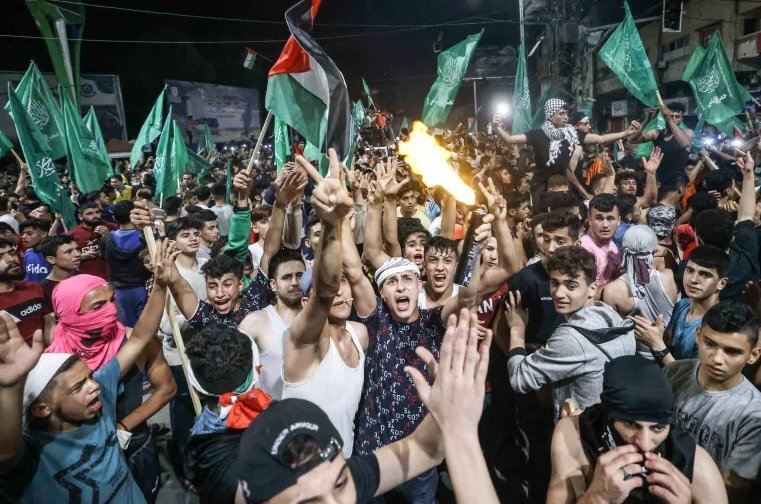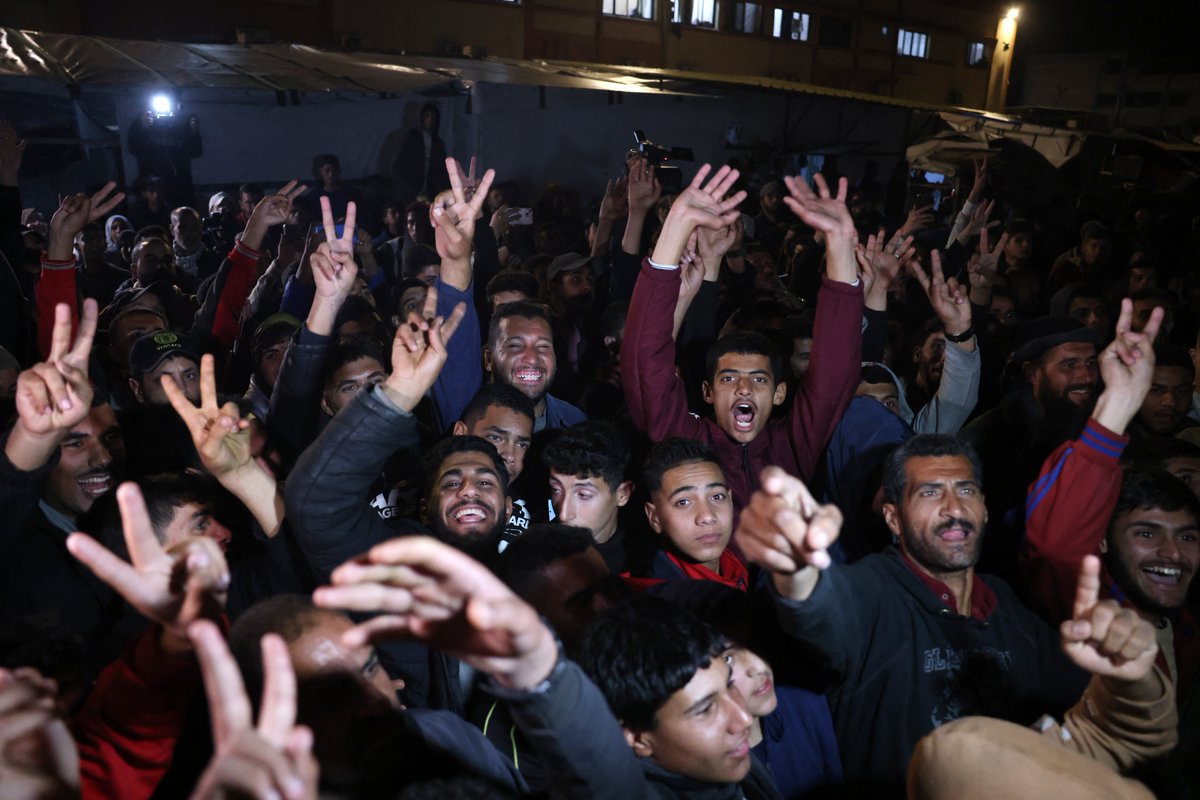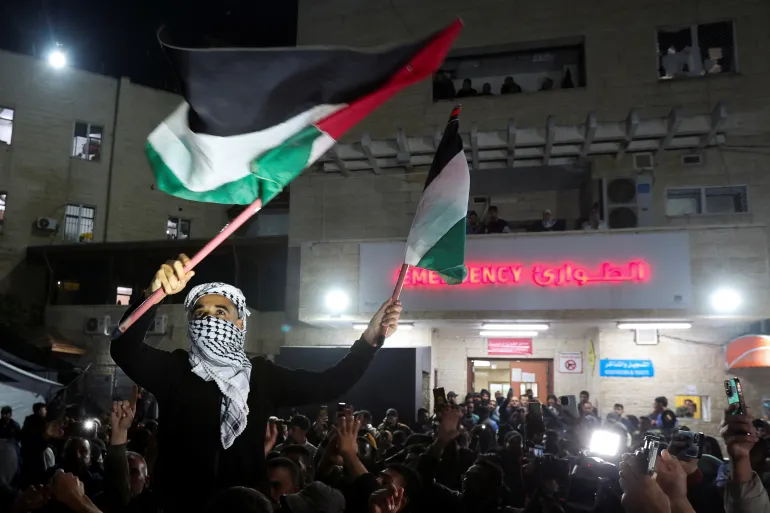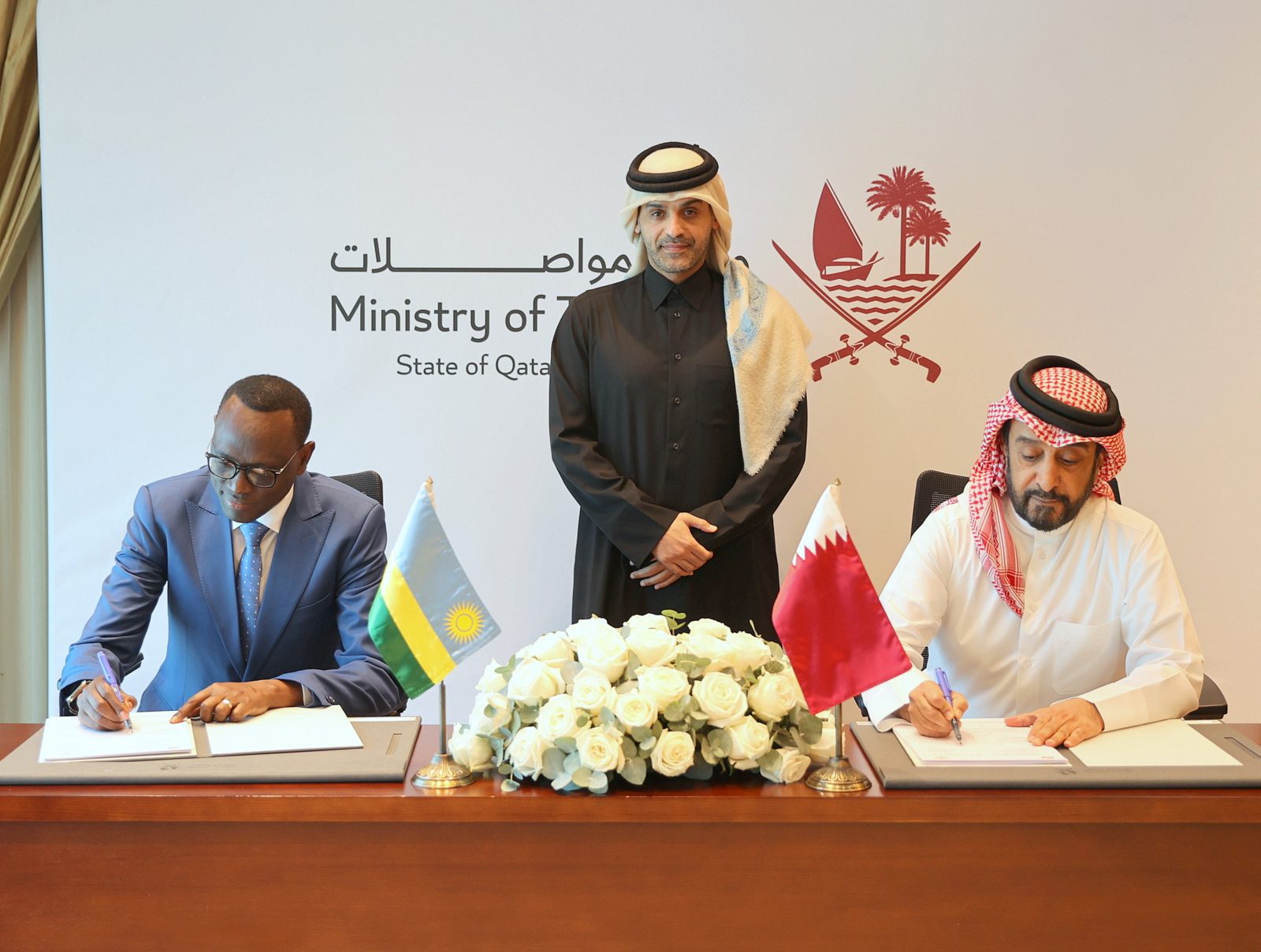Gaza ceasefire brings hope after 15 months of genocide, but as a survivor and writer, I long for more than survival; Gaza needs freedom, healing, and a chance to rebuild.
The long-awaited Gaza ceasefire has finally been announced, offering a faint but tangible light at the end of months of relentless devastation and killing.
For more than 15 months, the people of Gaza have lived through the unimaginable: air strikes, displacement, and constant loss. With the deal now accepted and its implementation imminent, I find myself holding my breath, grappling with hope and caution in equal measure.
The announcement of the ceasefire feels bittersweet. On one hand, it’s a moment I’ve yearned for—a chance to end the immediate suffering, displacement, and relentless loss of life. On the other hand, the word “ceasefire” carries a bitter aftertaste in Gaza. Too often, these fragile agreements have served as brief pauses in a lifetime under occupation.
As a Palestinian writer from Gaza, I’ve covered the war from the ground, documenting the human cost of each air strike, each blockade, and evacuation order. I’ve stood among grieving families, whose faces were etched with sorrow and whose voices trembled as they spoke of children, parents, and siblings lost in an instant.

I’ve reported from hospitals where doctors worked beyond exhaustion, stitching together lives with dwindling supplies and boundless determination. I’ve walked through streets that have become graveyards of dreams.
Forced into exile midway through the war, I am now far from the rubble that was once my home. I follow and report from outside, and hope for the day when I can return – even if my home is no longer there – safely and peacefully. My mind overflows with memories from the past year and a half, moments no ceasefire can erase.
I remember the sound of bombs tearing through our neighbourhood, the suffocating dust as our house crumbled around us, and the silence that followed. Buried under the rubble, I thought of whether I would survive to tell the world what was happening, to give a voice to those who were permanently silenced too soon.
Even as hope flickers, the path ahead feels overwhelming. How do we return to lives forever changed? Families once shared laughter and sorrow together; now, nearly everyone has lost someone they loved. Some have lost their entire families and all of their friends. How can we ever go back to a semblance of normalcy?
The past 15 months have been a genocide – a word many hesitate to use but one that has reverberated with every destroyed building, every shattered family, every life extinguished in agony.
In the wake of all this loss, a single news alert feels inadequate to repair the irreparable. It’s supposed to heal our wounds, bandage our soul’s scars, and compensate for all our tragic losses. Witnessing a ceasefire won’t be easy, but I promise to try to feel joy. I’m afraid that it won’t be an easy thing to do.
A ceasefire is not peace, nor justice—it’s a temporary pause, a fragile cover on deep, unhealed wounds. Gaza doesn’t need another temporary reprieve. We need freedom, dignity, and a chance to heal. We want the blockade to end, the occupation to cease, and the international community to hold Israel accountable for its crimes. Anything less is not a solution but a continuation of suffering by another name.

Today, I’m not just a journalist; I’m also a survivor and a Palestinian from Gaza. My professional detachment has been tested time and again, eroded by the very humanity I’m tasked to capture. How can I report on a mother wailing over her child’s lifeless body without hearing echoes of loss in every cry? How can I describe the rubble of someone else’s home without seeing my own in the debris?
I think of the stories I’ve told over the past year and three months and all the faces I’ve met. Amal, a young girl in Gaza, dreamed of becoming a doctor but lost her family and home in a single night. Ahmed, an elderly fisherman who clung to his boat like a lifeline, even as the sea itself seemed to turn against him. And there was Lina, a teacher who turned her bombed-out school into a makeshift shelter for displaced families. Such stories are what define Gaza, our endurance, our heartbreak, our unyielding will to live.
As the ceasefire’s effect is now hours away, I find myself yearning for more than mere survival. I want Gaza to be a place that isn’t torn by war. I want to see Gaza rebuilt, not just its buildings but its spirit. I want to see its people thrive, not just survive.
In the coming days and years ahead, I will hold on to this fragile hope. I will cling to it as fiercely as Gaza has clung to its right to exist. And I will continue to tell our story, because silence is complicity, and Gaza deserves to be heard.
As Gaza takes its first steps into a fragile calm, the world watches. Now, we hold on to hope—not just for the bombs to stop, but for a future where we are free to live, dream, and thrive. And in this moment of possibility, we dare to imagine a Gaza beyond the headlines and symbols of suffering—a Gaza full of life, love and infinite potential. It is a future we have long fought for, and one we will continue to build, step by step, until it becomes our reality.
Mohammed Mhawish, a Palestinian journalist and writer from Gaza, is a Contributing Writer for The Nation. He has also reported for Al Jazeera, MSNBC, The Economist, The New Arab, and more. Subscribe to his newsletter here.
This article is an opinion piece and does not necessarily reflect the views of Doha News, its editorial board, or staff.






